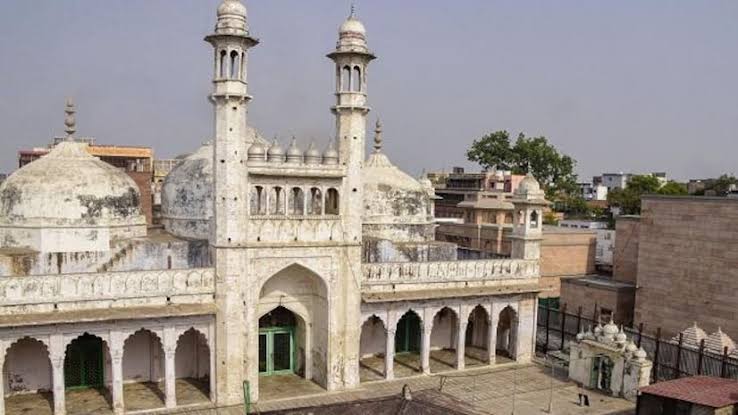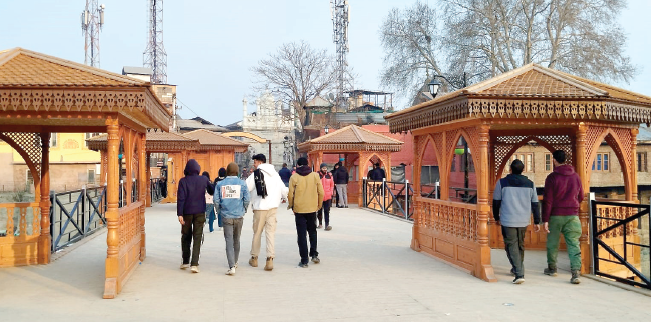The Archaeological Survey of India (ASI) has stated {that a} historic temple existed on the web site of Gyanvapi mosque advanced in Varanasi, Uttar Pradesh.
Jain, throughout a press convention, conveyed that the ASI report signifies the presence of a considerable pre-existing Hindu temple.
The ASI report, incorporating a Floor Penetrating Radar (GPR) survey, raises questions on historic layers on the web site.
Jain means that the present mosque construction seems to have been constructed atop a pre-existing one, with modifications involving the reuse of pillars and plaster, together with makes an attempt to change carvings on the pillars, as per the ASI findings.
Jain additional asserted that inscriptions in Devanagari, Telugu, Kannada, and different scripts, belonging to the traditional Hindu temple, have been uncovered throughout the survey.
The report recorded a complete of 34 inscriptions, with 32 stamped pages taken.
These revelations comply with a Varanasi courtroom’s ruling that the ASI survey report should be shared with each Hindu and Muslim events.
Final 12 months, the ASI performed a scientific survey of the Gyanvapi premises, responding to assertions that the mosque was constructed over a Hindu temple’s remnants.
The court-ordered survey underscores the continuing complexity surrounding the historic and spiritual context of the Gyanvapi mosque advanced.
What’s the controversy
The Gyanvapi Mosque in Varanasi, India, erected in 1669 throughout Aurangzeb’s Mughal rule, has change into a contentious historic web site, triggering extended disputes between Hindus and Muslims. Authorized petitions filed by Hindu teams in 1991 declare that the mosque stands on the ruins of a Hindu temple, whereas the Muslim group emphasizes its historic legitimacy for Islamic worship.
Tensions escalated in 2021, resulting in requires archaeological surveys and court-ordered video inspections.
These efforts revealed objects claimed by Hindus as proof of a former temple, reigniting debates on non secular freedom, historic claims, and the interpretation of the Locations of Worship (Particular Provisions) Act of 1991. The authorized battles contain intricate historic narratives and spiritual sentiments, with the Indian judiciary enjoying a vital position in balancing competing claims.
The Gyanvapi Mosque holds significance in Varanasi, Uttar Pradesh, a metropolis deeply rooted in India’s historical and cultural heritage.
Varanasi, also referred to as Benares or Kashi, stands as one of many world’s oldest constantly inhabited cities and a central pilgrimage spot for Hindus.
The mosque, located in Varanasi’s coronary heart, displays the varied non secular historical past and architectural heritage of the world.
The administration of the Gyanvapi Mosque is overseen by the Anjuman Intezamia Masjid committee, comprising members from the Muslim group.
Accountable for upkeep and administration, the committee preserves the mosque’s historic significance whereas assembly the non secular wants of tourists and worshippers.
Past bodily maintenance, they make sure the mosque stays a peaceable area for prayer and reflection amidst the continuing controversy.
In a parallel context, the Babri Masjid controversy, involving the development of a Ram temple, noticed the Supreme Court docket ruling in favor of the temple’s development.
This authorized determination, just like the Gyanvapi Mosque dispute, has additional highlighted the advanced interaction between non secular sentiments, historic claims, and the authorized framework in shaping India’s cultural and spiritual panorama.
#Gyanvapi #mosque #constructed #preexisting #Hindu #temple #claims #Archaeological #Survey #India
Kashmir Tourism
Kashmir News
Source Link



